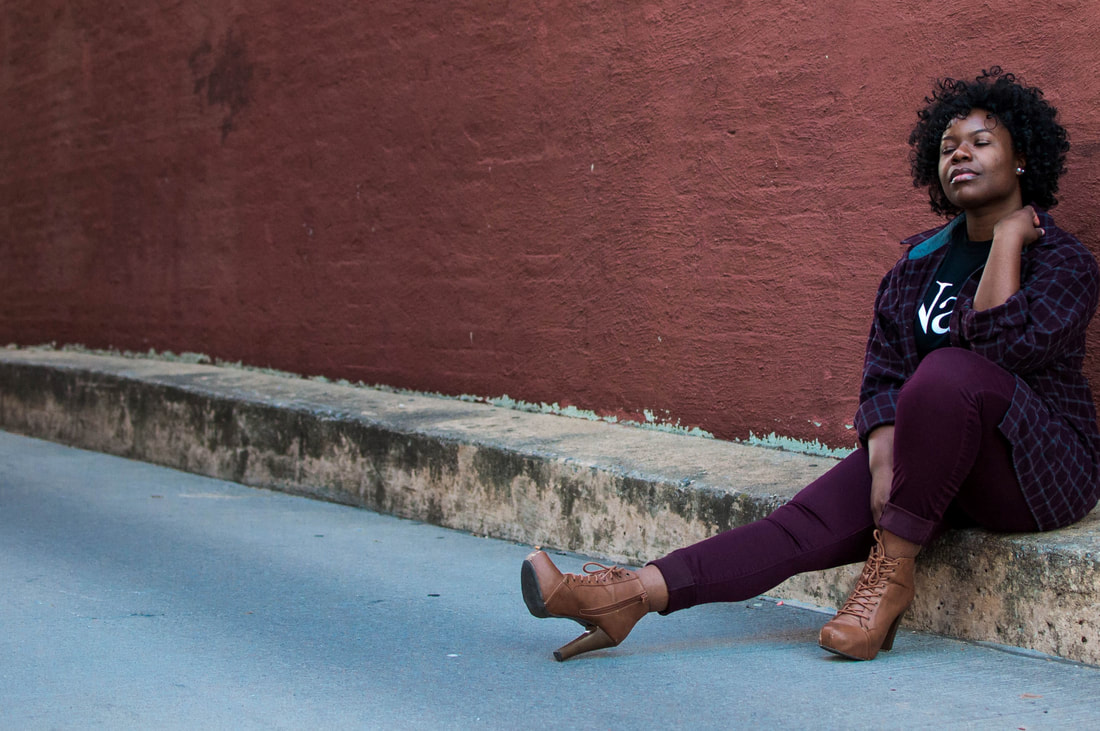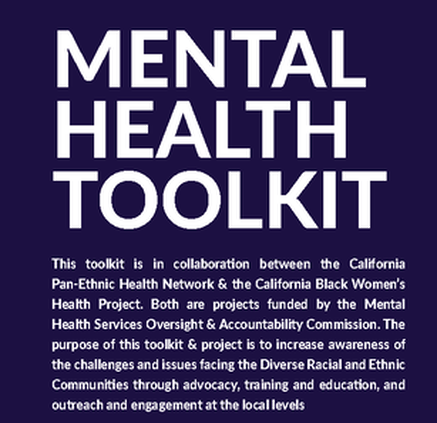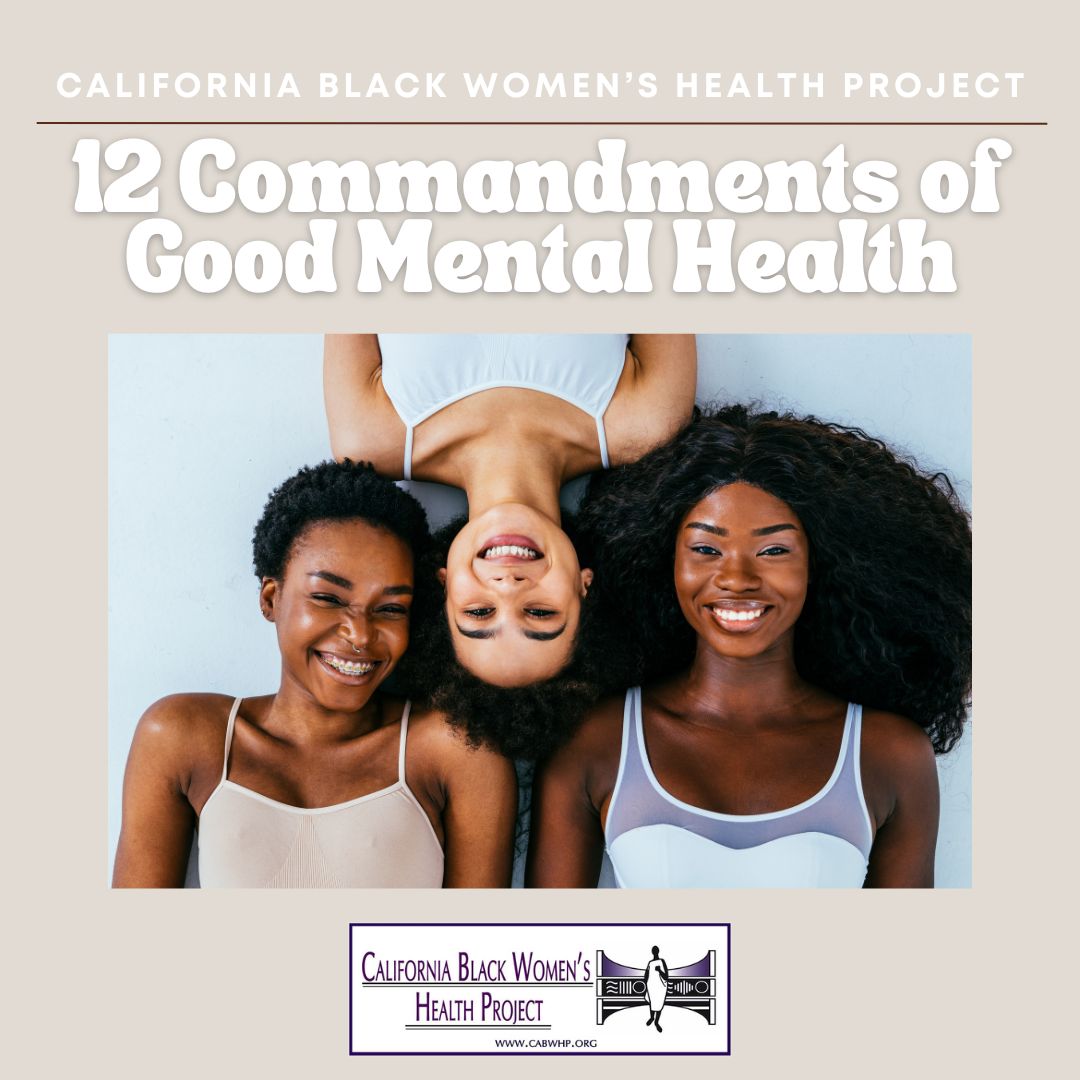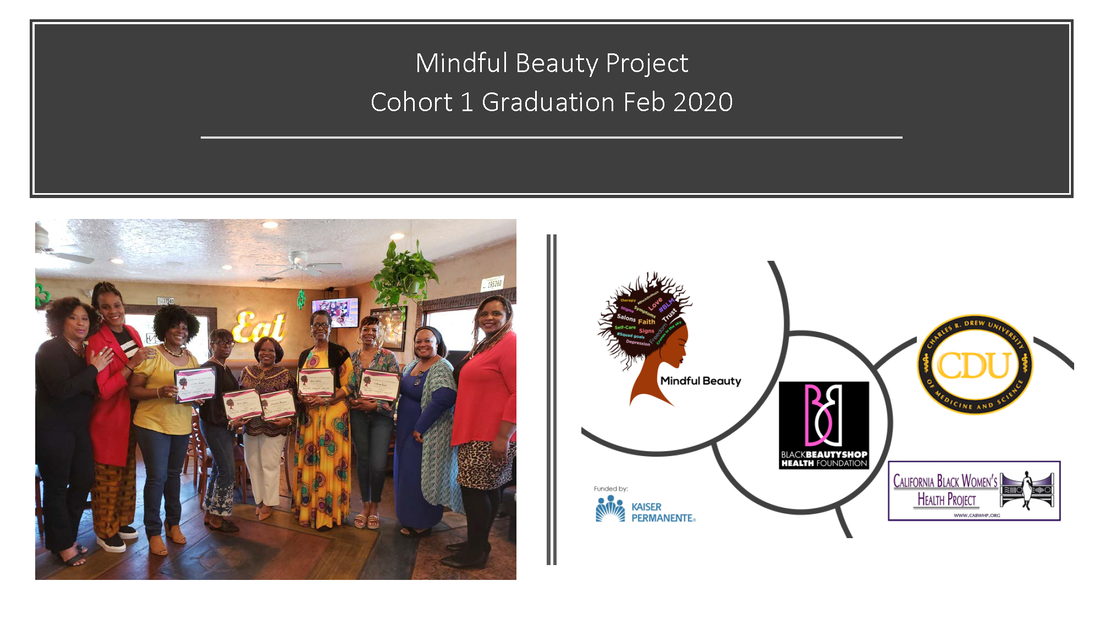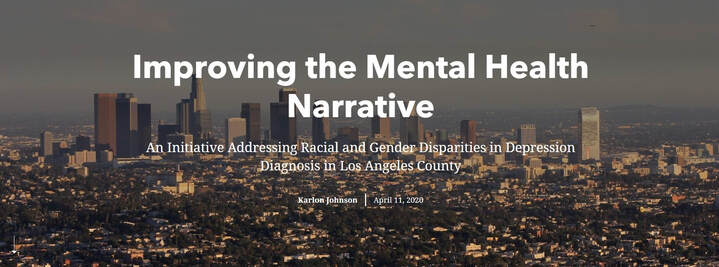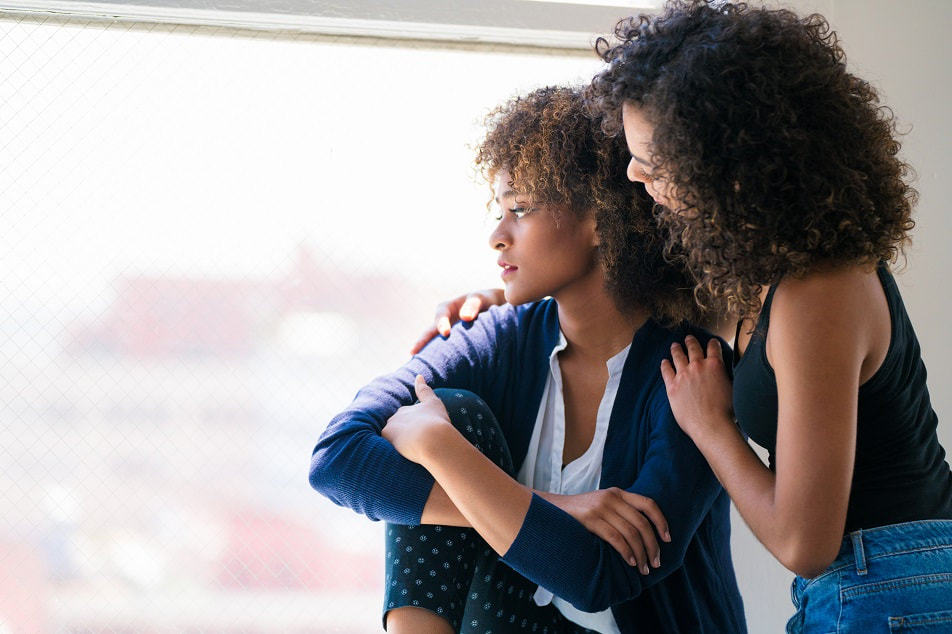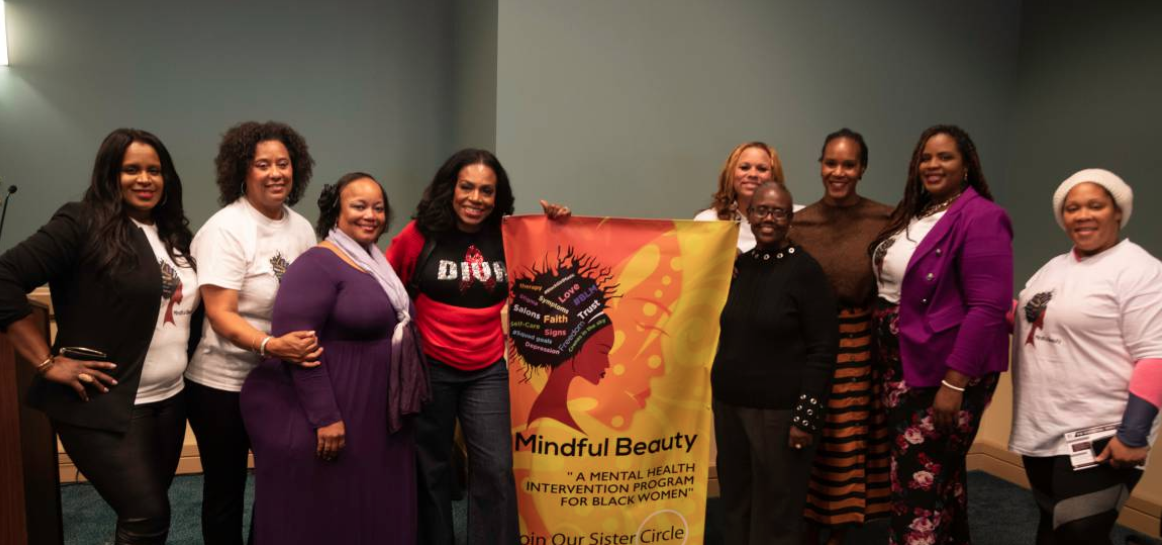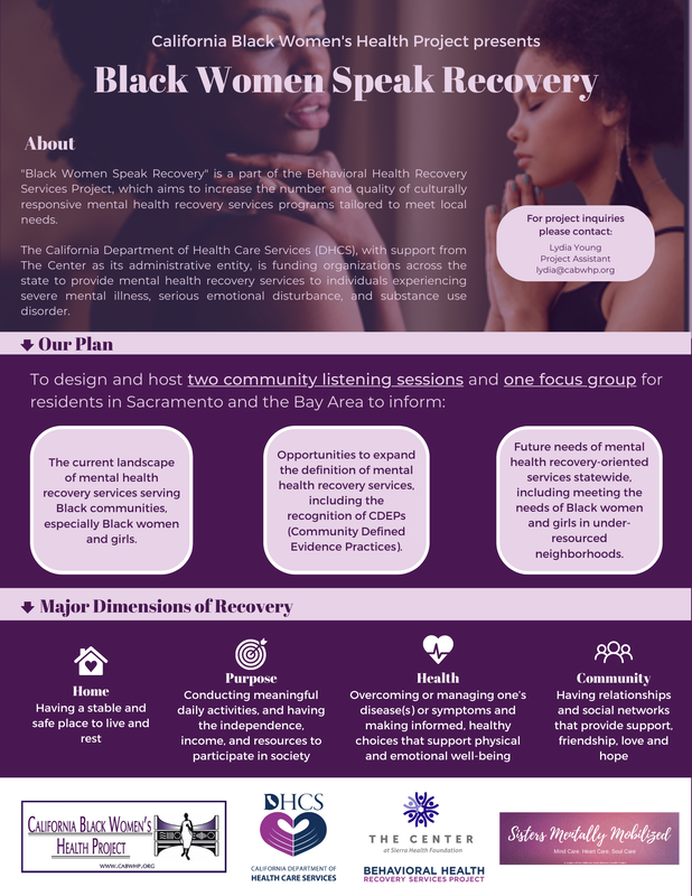Black Women and Mental Health
|
A variety of circumstances put Black women at high risk for mental and emotional stress - economic insecurity, responsibilities of care-giving, neighborhood violence, lack of social support and physical illness or disability. As a result, many are plagued by tension, anxiety, worry and fear. Because of the powerful and complex links between the mind, emotions and body, chronic states of stress and anxiety can have dangerous and sometime fatal, health consequences. In addition, the daily struggles of coping with racism and sexism further exacerbate mental and emotional stress.
|
This toolkit is in collaboration with the California Pan-Ethnic Health Network and California Black Women's Health Project funded by the Mental Health Services Oversight and Accountability Commission. This toolkit is to increase awareness about the mental health needs for our communities and provide advocacy tools to engage decision makers at the local level.
| ||||||
- 12 Commandments of Good Mental Health
Sisters Mentally Mobilized
Sisters Mentally Mobilized℠ (SMM℠) is a community defined intervention of California Black Women's Health Project designed to prevent and decrease mental health stigma, anxiety, and isolation in Black women. SMM combines mental health-focused advocate training (SMM-Advocate Training Program), and social support networks (SMM-Sister Circles) to build the capacity of Black women to speak to, and address mental health conditions and barriers in their lives and communities.
The failure to address these predisposing risk factors and adverse societal conditions exacerbates a pervasive mental health crises among Black women and families in California, leading to severely deteriorating mental illness and vicious circular cycles of conditions that contribute to and result from the onset and worsening of mental illness, including:
- Inter-generational trauma leading to internalized oppression; self-inflicted anger; self-hate; aggression; and the passing on of pain and stress from from grandparent, to parent, to grandchildren and beyond
- Stigma leading to shame; suspicion and paranoia; low seeking and utilization of mental health support and services; perpetual belief that depression only happens to Black women who are weak minded, troubled in spirit or have a lac of self-love; and a deep misconception that faith (spirituality) and mental health treatment are mutually exclusive
- Ongoing stress and abuse that is evidenced by high rates of anxiety, domestic violence (41% of Black women nationally experience interpersonal violence in their lifetime) and sexual abuse (an estimated 60% of Black girls nationally have experienced some form of sexual abuse before the age of 18.
Additionally, mental health resources in the Black community are both limited and overtaxed, resulting in a community health crisis that takes a toll on the souls of Black women. Within the Black community there is a severe shortage of culturally competent licensed clinical practitioners & programs to support the "good mental health" of Black women, a lack of mental health trained community advocates; a lack of "good mental health care" based on cultural and spiritual beliefs, and the absence of safe, caring, culturally responsive places to go for help ("safe spaces").
Sister Circles: Creating safe, healing spaces for Black women
Sister circles “are support groups that build upon existing friendships, fictive kin networks, and the sense of community found among African-American females. Originally embedded in the Black club movement sister circles have been a vital part of Black female life for the last 150 years. Sister circles exist directly in the community and within organizations that are components of women’s lives…”
Source: Neal-Barnett, et al. Sister Circles as a Culturally Relevant Intervention for African-American Women. Clinical Psychology (New York). 2011 September; 18(3) 266-273”
Whether formal or informal, sister circles are nationally recognized as a culturally relevant and effective therapeutic model for Black women. As opposed to the heteronormative male-centric “fight or flight” stress response, research shows that during times of stress, women are more likely to “tend and befriend” – a theoretical behavioral model developed by Dr. Shelley E. Taylor (UCLA). According to the “tend and befriend” theory, women form groups and coalitions to respond to threats and ameliorate stress. For Black women in particular, sister circles serve as “tend and befriend” protective barriers and safe spaces to “talk, deal and heal” from the unique and shared experiences and conditions (poverty, racism, mass incarceration, community and interpersonal violence, trauma, etc.) that negatively impact the mental and physical well-being of Black women and communities.
Source: Neal-Barnett, et al. Sister Circles as a Culturally Relevant Intervention for African-American Women. Clinical Psychology (New York). 2011 September; 18(3) 266-273”
Whether formal or informal, sister circles are nationally recognized as a culturally relevant and effective therapeutic model for Black women. As opposed to the heteronormative male-centric “fight or flight” stress response, research shows that during times of stress, women are more likely to “tend and befriend” – a theoretical behavioral model developed by Dr. Shelley E. Taylor (UCLA). According to the “tend and befriend” theory, women form groups and coalitions to respond to threats and ameliorate stress. For Black women in particular, sister circles serve as “tend and befriend” protective barriers and safe spaces to “talk, deal and heal” from the unique and shared experiences and conditions (poverty, racism, mass incarceration, community and interpersonal violence, trauma, etc.) that negatively impact the mental and physical well-being of Black women and communities.
Mindful Beauty
We are partnering with Charles R. Drew University and Black Beauty Shop Health Foundation, to provide South Los Angeles Black women with a depression-reduction program that trains Black hairstylists to spot signs of depression in their clients and refer them to local treatment and support services as appropriate.
Improving the Mental Health Narrative - Mindful Beauty Project Story MapKarlon Johnson Jr. MPHc is currently completing his second year in his Masters in Public Health Program at Charles R. Drew University of Medicine and Science in Los Angeles. Through his MPH 590 Applied Practicum Experience course, he was able to able to create this story map for the Mindful Beauty Project. The story map helps explain the importance of the Mindful Beauty Project in spreading awareness and addressing racial disparities to "reduce mental health stigma and increase the quality of life for Black women in South Los Angeles." |
South LA Beauty Shops Become a Safe Haven for Reducing Depression for African American Women - LA Sentinel“Given that black women visit hair salons an average of 2.5 times a month, which is at least 30 times a year, the beauty shop is an ideal place to educate women and equip them with practical tools to improve their health” said Margo LaDrew, founder and executive director of the Black Beauty Shop Health Foundation. “Mindful Beauty is an innovative mental health program that allows us to smartly and safely start the process of reducing the stigma behind mental health.” |
“There’s nothing wrong with saying, ‘Let me stay down here a minute and get grounded, so I can get strong to carry on...Find your words – ask for help!” -- Actress and Black BeautyShop Health Foundation Ambassador Sheryl Lee Ralph |
Former CABWHP mental health projects
|
CABWHP launched its Black Women’s Mental Health Initiative more than a decade ago. The following policy recommendations, with respect to mental and emotional health, were outlined in the findings of the California Black Women's Health Survey of 2000-2001:
|
"It Takes Courage to Ask for Help" |

